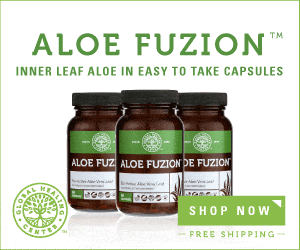
What Is “The Gut?”
The human digestive tract is a complex system comprised of many parts that, together, function as a single unit. Organs, enzymes, bacteria (commonly referred to as the gut microbiota), and other components collectively make up what we know as “the gut.” In many ways, it is a model ecosystem.
One truth I’ve observed again and again is that gut health is closely tied to overall health. When your gut is vibrant, so are you. When it’s not, neither are you. In fact, when gut function is disrupted, every part of the body is negatively affected. It’s a reality that makes gut-targeting harmful organisms especially devastating.
Which Harmful Organisms Affect the Gut?
The gut is home to many organisms. Most, like probiotics, are absolutely essential to your health, others are detrimental. The two most common organisms that prey on the gut are protozoa and helminth worms.
Protozoa are microscopic, one-celled organisms and there are about 70 species that can affect humans. Some protozoa can form protective “shells” called cysts that allow them to lay dormant for years before striking. Cysts even enable protozoa to survive externally, which means they can transfer and infect new hosts.
Helminth worms are a bigger threat in terms of both species (nearly 300 types can affect humans) and size (adult helminths range in size from under a millimeter to over a meter in length). That’s not a misprint—over a meter, in your body.
Until recently, it was believed that there are two major varieties of helminth worms—roundworms (nematodes) and flatworms (platyhelminths). Flatworms include tapeworms (cestodes) and flukes (trematodes). Researchers have also discovered an entirely new type of helminth called ropeworms. Ropeworms can grow to a meter long and have a lumpy, rope-like shape. They are often mistaken for feces or mucus and go undetected.
How Do Harmful Organisms Affect Gut Health?
Protozoa are aggressive, attack quickly, and multiply rapidly. Protozoa have the capability to be overwhelming and, in the worst situations, deadly. Symptoms vary by species of protozoa but typically include diarrhea and stomach troubles.
Conversely, worms live long and grow slowly. They attach to the intestinal lining or burrow deep into tissue. There, they steal nutrients and cause intestinal obstruction, often producing chronic, gradually worsening health conditions. In children, worms can affect normal development of the body and brain.[7] Unlike protozoa, worms do not multiply within the human body.
How to Avoid Harmful Organisms
Harmful organisms are transmitted through fecal contamination of food or water and by person-to-person contact. If your system is overtaken by protozoa, the problem will be apparent. Worms, however, can live inside the human gastrointestinal tract for years without causing symptoms. When symptoms do appear, they tend to surface in the form of digestive issues.
Proactive measures are the best defense against all types of harmful organisms. Strategies to avoid harmful organisms include:
- Wash your hands with soap and water before handling food or eating.
- Thoroughly wash fruits and vegetables before eating.
- Be cautious about the origin of your food (especially prepared foods).
- I advocate a vegan raw-food diet but if you consume meat, cook it thoroughly and appropriately.
- If you grow your own produce, use safe, organic methods of pest control.
- Protect yourself from environments that accommodate harmful organisms. For example, don’t walk barefoot through puddles.
- If you have indoor pets, limit their outdoor time and groom them regularly.
- Regularly cleanse your living environment.
Have harmful organisms negatively affected your life? Leave a comment below and share your experience with us.
